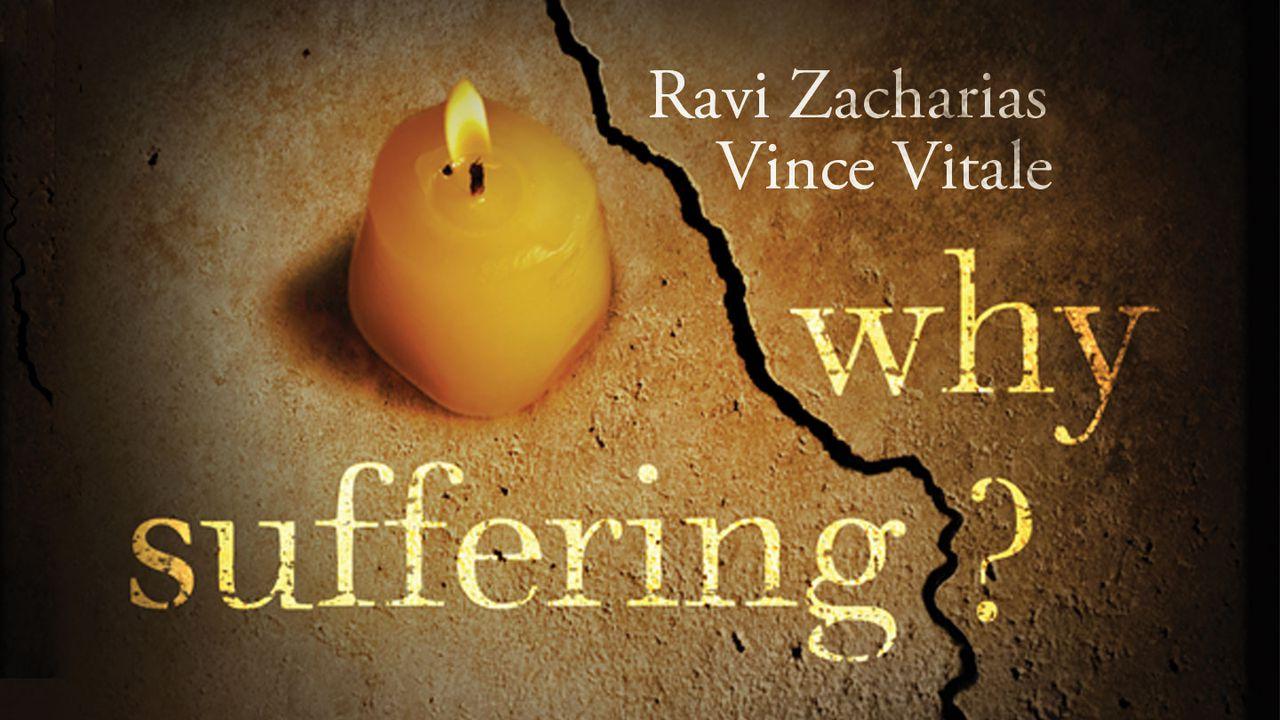Why SufferingSample

Reason Not To Expect a Reason
Pastor Tim Keller makes an important observation: “If you have a God great and transcendent enough to be mad at because he hasn’t stopped evil and suffering in the world, then you have (at the same moment) a God great and transcendent enough to have good reasons for allowing it to continue that you can’t know. Indeed, you can’t have it both ways.”[1]
Should we expect to find a fully satisfying answer to the question of why God allows suffering? Good reasoning suggests perhaps not.
If God exists, He is infinite in every respect; His intelligence surpasses our own to an incomprehensible degree. Why then should we be surprised when God’s ways are higher than our ways? Why should we be surprised if fully understanding God’s ways requires capacities that—at least for now—finite creatures like us don’t possess?
As good parents look forward to the day when their children are old enough to understand, so too God looks forward to, and indeed promises, such a day: “When I was a child, I talked like a child, I thought like a child, I reasoned like a child. When I became a man, I put the ways of childhood behind me. For now we see only a reflection as in a mirror; then we shall see face to face. Now I know in part; then I shall know fully, even as I am fully known” (1 Cor. 13:11–12).
One of the assumptions smuggled into the thought that suffering disproves the existence of God is this: If God does have good reasons for allowing the suffering that He allows, we should know what those reasons are.
But why think that? God might have many reasons for allowing suffering. And we shouldn’t be at all taken aback if we aren’t able to grasp them in full.
What most people find when they reflect deeply about suffering is that it’s not that difficult to think of plausible reasons for why God might have allowed some of the suffering they’ve been through. But other instances of suffering defy understanding, and even after sustained reflection no plausible explanation presents itself.
If that’s what we find after serious reflection, we shouldn’t be surprised. That’s what we should expect when considering the ways of a God who does desire for us to know Him, but who is too big for us to fully appreciate all of His reasons.
With respect to God’s reasons, many times we do see them, but many times they are difficult for us to see from our limited, finite perspective. And as deeply frustrating as that can be, it’s just what good reasoning suggests we should find.
We find this idea in the Bible in several places, for instance in Paul’s letter to the Romans: “Oh, the depth of the riches of the wisdom and knowledge of God! How unsearchable are his judgments, and his paths beyond tracing out!” (Rom. 11:33–34). Given the transcendence of God and the finitude of ourselves, what’s remarkable is how many of God’s reasons we can understand, at least in part.
Though perhaps this too should be unsurprising, because while God is indeed infinitely beyond us, He has also lowered Himself, making every effort and every sacrifice in order to reveal His love to us in the person of Jesus Christ:
Who, being in very nature God, did not consider equality with God something to be used to his own advantage; rather, he made himself nothing by taking the very nature of a servant, being made in human likeness. And being found in appearance as a man, he humbled himself by becoming obedient to death—even death on a cross! (Phil. 2:6–8)
Reflection Questions
- It takes an extraordinary amount of confidence in one’s intellectual abilities to claim, “I know the sort of world God should have created.” Why is this really a claim to know as much as God Himself?
- It should give us serious pause if we assume that God can only have good reasons for something if we know what those reasons are. The Bible puts the question this way: “Who has known the mind of the Lord so as to instruct him?” (1 Cor. 2:16). What does such an assumption assume about who we are?
Bible Verses
- 1 Corinthians 13:11–12
- Romans 11:33–34
- Isaiah 55:8–9
- Philippians 2:6–8
Citation
[1] Timothy Keller, The Reason for God: Belief in an Age of Skepticism (New York: Penguin, 2008), 25.
About this Plan

This study is based on the book WHY SUFFERING? written by Christian apologist Ravi Zacharias and Vince Vitale, Dean of the Zacharias Institute, It is written for the Christian struggling for an answer, the seeker who thinks suffering disproves God’s existence, and the sufferer who needs a glimpse of a loving God.
More
We would like to thank RZIM for providing this plan. For more information, please visit: https://rzim.org
Related Plans

Who Is God?: 6 Key Q&As for Kids

Homebound: Trusting God Through Detours, Disappointment, and Deep Healing

Clarity of Purpose

The Heart of Desire: A 5-Day Reading Plan to Growing Intimacy in Marriage

Daily Declarations to Transform Your Life

Faith Is Essential to the Entrepreneur

Hebrews Book Study - TheStory

Transformation Truths

Christian Mindfulness Devotional
